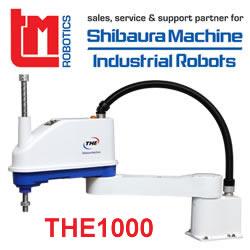NDSU Students Develop 3D Printing Self-Replicating Robot
A team of students at the North Dakota State University have completed a key step in the development of a robot that is able to make a replica of itself.
Fargo, ND, July 19, 2017 (Newswire.com) - A team of students at the North Dakota State University have completed a key step in the development of a robot that is able to make a replica of itself. Self-replicating robots are key to long-duration exploration of other planets. They also have numerous industrial, military and other uses.
"The potential exploration and other uses of self-replicating robots are significant," commented NDSU Assistant Professor of Computer Science Jeremy Straub, who is overseeing the project. "With the use of in-situ materials, there is a potential to make numerous copies of an initial set of robots and greatly expand the work-performance capabilities of the robotic team. Replacement parts can also be produced to return damaged units to service."
By producing robots in-situ, materials brought to a planet for exploration or a region of Earth for military or exploration use can go much further, producing ten times or more units, as compared to shipping ready-to-use units. The current design utilizes a number of metal and electronic components that cannot be produced in-situ. A long-term goal of the project is to minimize the number of components that must be externally supplied and limit how many robots can be replicated. This reduction will allow even more units to be produced from a given mass and volume of initial supplies.
"Its been a challenging experience for the team. A lot of interdisciplinary cooperation has contributed to our progress so far," said NDSU Software Engineering Ph.D. student Andrew Jones. Andrew is leading the student team and working on this topic for his Ph.D. dissertation. "Making something that can make something as complex as itself adds another level of complexity."
The project, which was supported by the NDSU Office of Research and Creative Activity, has involved students from NDSUs Computer Science, Electrical Engineering, Mechanical Engineering and Industrial Engineering departments. Initial work on this project was documented in an article in the MDPIs Machines journal entitled "Concepts for 3D Printing-Based Self-Replicating Robot Command and Coordination Techniques," authored by Jones and Straub. The concepts documented in this article have been advanced by the recently completed work.
This work builds on Straubs prior work in other related areas including quality assurance of 3D printing and cybersecurity for 3D printing. A deployed self-replicating robot would require these capabilities for mission success.
About NDSU Computer Science
The NDSU Computer Science Department was founded in 1988 (though computer science courses were offered as part of Mathematical Sciences since 1973). It occupies 7,460 square feet and has approximately 600 graduate and undergraduate student majors.
Featured Product

TM Robotics - Shibaura Machine THE SCARA range
The THE range from Shibaura Machine is an extensive line up of SCARA robots. Available in four arm lengths THE400 (400mm), THE600 (600mm) and the most recent THE800 (800mm) and THE1000 (1000mm), this range is suitable for assembly, handling, inspection and pick and place processes in varied industrial applications. The THE1000 boasts a 20kg payload capacity and an impressive 0.44 second cycle time, providing high speeds for processes with large components. In fact, the range has been recognised for as the price-to-performance leader compared to other SCARA models in its price range due to its impressive speed versus payload capacity.
